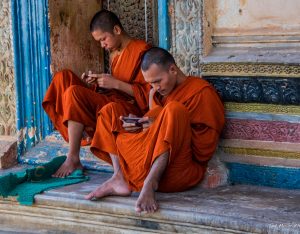Cambodia’s government has issued a decree establishing a National Internet Gateway that will allow online traffic to be controlled and monitored, tightening further its control over what its citizens say online.
The 11-page decree, announced on Wednesday, argues that such controls are necessary in order to help safeguard national security and maintain social order. For the ruling Cambodian People’s Party (CPP), this is code for restricting dissenting political voices, particularly those of long-time opponents.
According to the decree, the operator of the gateway will support authorities with “measures to prevent and disconnect all network connections that affect national income, security, social order, morality, culture, traditions, and customs.”
Once the decree comes into force, all internet traffic, including from overseas, will be routed through a single portal managed by a government-appointed regulator. Internet service providers (ISPs) will be given 12 months to re-route their networks through the single gateway, although the law gave no timeframe for its launch.
The decree also requires ISPs to make users complete online forms with their correct identities and states that failure to connect networks to the gateway would be punished with the suspension of operating licenses and the freezing of bank accounts. In addition to monitoring what its citizens post and share, the new internet gateway would give the Cambodian government the ability to “turn off” internet access, in the event of large-scale protests or other social disturbances.
The proposed internet gateway bears a close resemblance to the internet controls in China, which has become a close partner of Prime Minister Hun Sen and his government, as the latter’s relationship with Western governments has deteriorated due to its harsh crackdown on the opposition.
While the Chinese government’s involvement’s exact involvement in Cambodia’s incipient internet control regime remains unclear, it is nonetheless consistent with the growing digital authoritarianism in Southeast Asia, as conservative forces from Naypyidaw to Hanoi seek to impose hard limits on the digital spaces that have transformed and extended the public sphere in many countries.
In Cambodia, Facebook and a boom in mobile internet use helped propel the electoral breakthrough of the Cambodia National Rescue Party (CNRP) in July 2013, when it took a significant bite out of the CPP’s share of the vote. Since then, the CPP has taken steps to ensure that history will not repeat. In late 2017, a CPP-controlled court abolished the CNRP, sending most of its senior leadership into exile, amid a broader crackdown on civil society and the independent press. At the national election of 2018, the CPP went on to “win” all 125 seats in the National Assembly.
Given the importance of Facebook to the opposition, this crackdown has naturally extended to the online sphere. A Law on Telecommunications passed in late 2015 allows authorities significant powers to request user traffic data from ISPs. The country’s other laws have also been used against opposition officials and ordinary users who post critical comments on Facebook or other social media platforms.
As Chak Sopheap, executive director of the Cambodian Center for Human Rights, told Reuters, “The last few years have seen a sharp increase in the number of citizens being threatened, harassed and even prosecuted for their use of the internet and for exercising their right to free speech.”
The latest move is unsurprising, given that the online space remains crucial to the organizing efforts of Cambodia’s exiled opposition, and one of its few lines of communication to its supporters within the country. But it will do little to address many grievances that have motivated so many people to support the opposition in the first place. Over the long run, the CPP’s mooted internet controls are thus a recipe for the very social “instability” that they are intended to avoid.

































